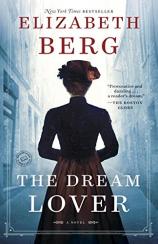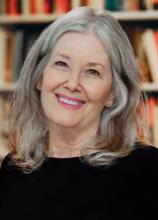Reading Group Guide
Discussion Questions
The Dream Lover

1.Sand felt abandoned by her mother. Did the circumstance of having been left with her grandmother at an early age make her stronger or weaker? How do you think life would have been different for George if her father had lived?
2. George Sand behaved boldly, but was at heart very shy. What other paradoxes did you notice in her character and in her life?
3. Two very different environments were important to George Sand’s life and work: the city of Paris and her country home at Nohant. Which do you think was more important to her? What did each offer her?
4. How do you think Sand’s marriage affected her art? What do you think contributes more strongly into the making of an artist: genetics or life circumstances?
5. George Sand demonstrated a fluidity in assuming the roles of both man and woman. She often referred to herself as a man, yet Alfred de Musset referred to her as the most feminine woman he had ever known. What was your perception of George?
6. The mother-daughter relationships in THE DREAM LOVER are particularly complex. Did you think Sophie was a “bad” mother? What about George herself?
7. What do you think George Sand needed most from a relationship? How is that different from what she believed she needed?
8. George Sand described herself this way: “…very impressionable, carried away by my love of beauty, hungry for truth, faulty in judgement, often absurd, and always sincere.” Do you agree?
9. In her quest to live truthfully, George Sand left her husband altogether and her children much of the time. How do you feel about that? Was it necessity or selfishness?
10. George Sand quickly became maternal with her male lovers. She said at one point that it was so they would become dependent on her and not leave her. What do you think of this statement?
11. One of the great sorrows in George Sand’s life was her contentious relationship with her daughter. What do you think might have improved her relationship with Solange?
12. THE DREAM LOVER suggests that Marie Dorval was the great love of George Sand’s life. How did you feel about Marie’s assertion that one seeks not the object of one’s desire, but desire itself? Could George Sand ever have accepted anything but continuous passion in a relationship?
13. Nature and spirituality were important constants in Sand’s life. What were the sources for these affinities? How did they play out in her work and in her life? How did they affect her world view? If she had been allowed to become a nun, do you think she would have stayed one?
14. Some people say that the idea of what could have been is the hardest sorrow to bear. Do you agree?
15. Did you learn any surprising things about George Sand’s famous friends (Chopin, Flaubert, Balzac, Liszt)?
16. At the end of the novel, there is a quote from Sand from a letter she wrote to Delacroix, saying that nothing dies, nothing is lost and nothing ends. What sentiments or experiences do you think fueled such a remark? How do you interpret it?
17. Do you think that after having lived over 150 years ago, George Sand and the things she wrote about are still relevant?
18. THE DREAM LOVER invites us into the life of salons. Do you think that book clubs help to bring back some semblance of that kind of regular, enriching and stimulating encounter? Why do we need book clubs? What do they offer our spirits and psyches that reading alone does not? How can they be expanded to provide an even deeper experience?
The Dream Lover
- Publication Date: March 22, 2016
- Genres: Fiction, Historical Fiction
- Paperback: 400 pages
- Publisher: Ballantine Books
- ISBN-10: 0345533801
- ISBN-13: 9780345533807








